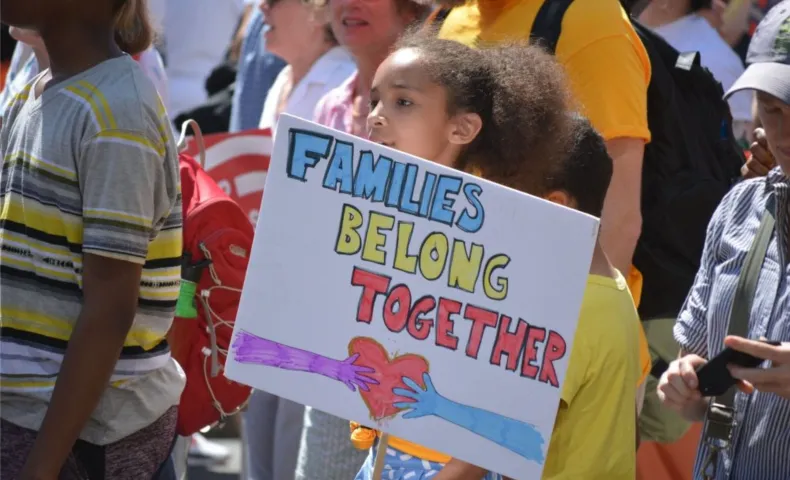 Photo Credit: Christopher Penler
Photo Credit: Christopher Penler
“We Have a Responsibility.” Six Funders Supporting Immigrant and Refugee Children and Families
This feature article was first published by Inside Philanthropy on August 7, 2024.
As part of our ongoing informal series on philanthropic support for immigrants and refugees, we’ve looked at which funders are backing students, as well as those funding legal assistance and policy advocacy. Now, we’re turning our attention to funders who are supporting immigrant and refugee children and families.
Funding in this space is largely divided into two big areas. The first is assistance for children and families already living in the U.S. This includes both direct aid as well as funding to address the root causes of issues immigrant and refugee children and families face. The second area is support for children and families who have been separated at the U.S.-Mexico border, and for unaccompanied minors arriving at the border.
Under the Trump administration, the U.S. Department of Justice implemented a zero-tolerance policy for migrants who crossed the border without permission. Migrants who did so, including those seeking asylum, were referred to the DOJ for criminal prosecution. Adults and children were separated, including toddlers and infants as young as six months old. There were numerous reports of the poor conditions at migrant detention facilities, and at least seven children died in custody. The now-infamous images of children in cages sparked national outcry.
Although President Donald Trump ordered a halt to family separations in 2018 and a judge ordered families be reunited, separations, which were perpetrated informally even before the zero-tolerance policy was implemented, continued, according to the Council on Foreign Relations.
In this fraught environment, numerous philanthropic funders took action — and continue to take action — to support migrant children and families. “Government policies that separate children from families and cause young people to be detained indefinitely and inhumanely further traumatize young people already fleeing violence in search of safety,” said John Hecklinger, president and CEO of Global Fund for Children, in a statement regarding a 2020 conference that brought together grassroots and philanthropic leaders to advocate for migrant children and youth. He added, “We have a responsibility to stand up for children’s rights and to protect all children from adversity and trauma.”
Family separations continued under the Biden administration. In the 2021 fiscal year, for example, 122,000 migrant children were taken into custody without their parents or guardians, breaking all previous records. Last year, a federal judge “prohibited the separation of families at the border for purposes of deterring immigration for eight years,” according to the AP.
The damage done by these policies, however, remains, and many migrant children and families continue to struggle. To that end, here are some of the funders who are supporting immigrant children and families in the U.S.
Evelyn and Walter Haas, Jr. Fund
Also based in California, the Evelyn and Walter Haas, Jr. Fund is a significant funder in the immigrant philanthropy space. As part of its immigrant rights program, the fund works alongside both national and statewide partners to limit the separation of families and model for the rest of the nation how border protections can be humane and civil toward children and unaccompanied youth, among other things.
Its grants include support for the California Immigrant Resilience Fund, created to resource organizations that provided direct relief to undocumented immigrants and their families during the pandemic, as well as support for Justice Action Center to promote human asylum policies for unaccompanied children and families, the Interfaith Movement for Human Integrity to advocate for humane treatment of newly arriving families and children at the border, United We Dream Network to advocate for undocumented young people and their families, and the Young Center for Immigrant Children’s Rights.
Haas also joined other funders to sign a statement from Grantmakers Concerned with Immigrants and Refugees (GCIR) that responded to family separation and detention policies.